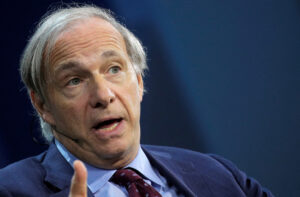Some links in this article may be affiliate links, meaning we may earn a small commission if you make a purchase through them.
Introduction to Leadership:
Leadership is a fundamental concept that influences various aspects of our lives, from business and politics to personal development. At its core, leadership involves guiding and inspiring others towards a common goal or vision. Effective leadership requires a combination of skills, traits, and behaviors that enable individuals to influence, motivate, and empower those around them.
Understanding True Leadership:
Tony Robbins, a renowned motivational speaker and leadership expert, outlines three mandates of true leadership in his book the Holy Grail of investing. Firstly, leaders see things as they are, without succumbing to pessimism or cynicism. Secondly, they see things as better than they are, envisioning a brighter future and inspiring others with their optimism. Finally, leaders make it the way they see it, taking courageous action to turn their vision into reality.
Seeing Things as They Are:
Realism is a fundamental aspect of effective leadership, requiring leaders to have a clear and accurate understanding of the current situation. Research by psychologist Tasha Eurich highlights the importance of self-awareness, a key component of realism, in leadership effectiveness. Leaders who possess high levels of self-awareness are better equipped to recognize their strengths and weaknesses, solicit feedback, and adapt their behavior to meet evolving challenges.
Alan Mulally, former CEO of Ford Motor Company, exemplifies the power of realism in leadership. Upon joining Ford in 2006, Mulally inherited a company on the brink of bankruptcy, facing stiff competition and declining market share. Instead of sugarcoating the situation, Mulally openly acknowledged Ford’s challenges and initiated a bold restructuring plan, known as the “One Ford” strategy. By confronting reality head-on and rallying his team around a shared vision, Mulally successfully led Ford through one of the most challenging periods in its history, restoring profitability and revitalizing the company’s brand.
Seeing Things as Better Than They Are:
Optimism and vision are indispensable qualities of effective leadership, inspiring teams to achieve ambitious goals and overcome obstacles. Research by psychologist Martin Seligman suggests that optimistic leaders create a positive work environment characterized by resilience, creativity, and high performance. By cultivating a culture of optimism, leaders can foster innovation and adaptability, driving organizational success in dynamic and competitive markets.
Satya Nadella, CEO of Microsoft, epitomizes the transformative power of visionary leadership. Upon assuming the role of CEO in 2014, Nadella faced the challenge of reinvigorating Microsoft’s stagnant growth and adapting to the rapidly evolving technology landscape. Drawing on his vision of empowering every individual and organization to achieve more, Nadella spearheaded a cultural transformation at Microsoft, emphasizing collaboration, innovation, and customer-centricity. Under his leadership, Microsoft experienced a remarkable resurgence, reclaiming its position as a leader in the technology industry and achieving record-breaking revenue growth.
Making It the Way They See It:
Leadership is not merely about having a vision—it’s about taking decisive action to turn that vision into reality. Research by management scholars Jim Collins and Jerry Porras highlights the importance of aligning actions with vision to achieve lasting organizational success. Leaders who demonstrate courage, determination, and persistence in pursuing their goals inspire confidence and commitment among their teams, driving transformative change and sustainable growth.
Indra Nooyi, former CEO of PepsiCo, exemplifies the qualities of courageous leadership in action. Throughout her tenure at PepsiCo, Nooyi championed a bold vision of “Performance with Purpose,” emphasizing sustainable growth and social responsibility. Despite facing skepticism from investors and industry peers, Nooyi remained steadfast in her commitment to transforming PepsiCo into a purpose-driven organization. Through strategic investments in healthier products, environmental sustainability, and community engagement, Nooyi successfully aligned PepsiCo’s business objectives with societal needs, driving both financial performance and positive social impact.
Practical Tips for Developing Leadership Skills:
Developing leadership skills is a continuous journey that requires deliberate practice and self-reflection. Effective communication is a cornerstone of leadership, enabling leaders to convey their vision, motivate their teams, and foster collaboration. Research by communication scholar John Adair emphasizes the importance of active listening, clarity of expression, and non-verbal communication in effective leadership. By honing their communication skills through practice and feedback, aspiring leaders can enhance their ability to influence and inspire others.
Emotional intelligence (EI) is another crucial aspect of leadership development. Psychologist Daniel Goleman’s seminal work on EI highlights its significance in leadership effectiveness, suggesting that leaders who demonstrate high levels of EI are better equipped to navigate interpersonal dynamics, resolve conflicts, and build cohesive teams. By cultivating self-awareness, empathy, and social skills, individuals can strengthen their emotional intelligence and become more effective leaders. Research by psychologist Peter Salovey and John Mayer highlights the four components of EI: self-awareness, self-regulation, social awareness, and relationship management. Leaders with high EI are adept at recognizing and controlling their emotions, empathizing with others, and building strong interpersonal relationships. By prioritizing EI development through training, coaching, and feedback, leaders can enhance their ability to inspire trust, foster collaboration, and drive organizational success.
Decision-making is a core competency of leadership, requiring leaders to weigh options, assess risks, and make sound judgments in uncertain situations. Research by behavioral economist Daniel Kahneman sheds light on the cognitive biases and heuristics that influence decision-making, emphasizing the importance of rationality, objectivity, and critical thinking in leadership. By adopting a systematic approach to decision-making and seeking diverse perspectives, leaders can minimize cognitive biases and enhance the quality of their decisions.
Resilience is another key trait of effective leadership, enabling leaders to bounce back from setbacks, adapt to change, and maintain focus amidst adversity. Psychologist Martin Seligman’s research on learned optimism underscores the importance of resilience in leadership, suggesting that individuals can cultivate a positive mindset and build resilience through cognitive restructuring and problem-solving skills. By reframing challenges as opportunities for growth and learning, leaders can foster resilience within themselves and inspire resilience in their teams.
Challenges in Modern Leadership:
Modern leaders face a myriad of challenges in today’s dynamic and interconnected world. Globalization has expanded markets and opportunities but also increased competition and complexity. Technological disruption has revolutionized industries and business models, requiring leaders to embrace innovation and adapt to rapid change. Diversity and inclusion have become paramount concerns, necessitating leaders to foster inclusive cultures and leverage the diverse talents and perspectives of their teams. Environmental sustainability has emerged as a pressing issue, demanding leaders to adopt sustainable practices and address climate-related risks.
The digital age has reshaped the landscape of leadership, ushering in new opportunities and challenges. Virtual teams and remote work arrangements have become commonplace, necessitating leaders to leverage digital communication tools and platforms to connect with their teams and foster collaboration. Agile leadership, characterized by flexibility, adaptability, and responsiveness, has become essential in navigating the complexities of the digital age. Leaders must embrace technology as an enabler of innovation and efficiency while also mitigating risks associated with cybersecurity, data privacy, and digital disruption.
Conclusion:
In conclusion, leadership is a multifaceted concept that encompasses vision, realism, and decisive action. True leaders possess the ability to see things as they are, while also envisioning a brighter future and taking courageous steps to make that vision a reality. By cultivating essential skills such as effective communication, emotional intelligence, and resilience, individuals can develop their leadership potential and make a meaningful impact in their organizations and communities. However, modern leaders also face numerous challenges, from globalization and technological disruption to diversity and environmental sustainability. Navigating these challenges requires adaptability, innovation, and a commitment to continuous learning and development. Ultimately, effective leadership is not just about achieving individual success but about inspiring and empowering others to reach their full potential, driving positive change and creating a better future for all.
Additional Resources:
- “Leaders Eat Last: Why Some Teams Pull Together and Others Don’t” by Simon Sinek
- “Dare to Lead: Brave Work. Tough Conversations. Whole Hearts.” by Brené Brown
- “The 7 Habits of Highly Effective People: Powerful Lessons in Personal Change” by Stephen R. Covey
- “Good to Great: Why Some Companies Make the Leap… and Others Don’t” by Jim Collins
- “Primal Leadership: Realizing the Power of Emotional Intelligence” by Daniel Goleman, Richard E. Boyatzis, and Annie McKee




